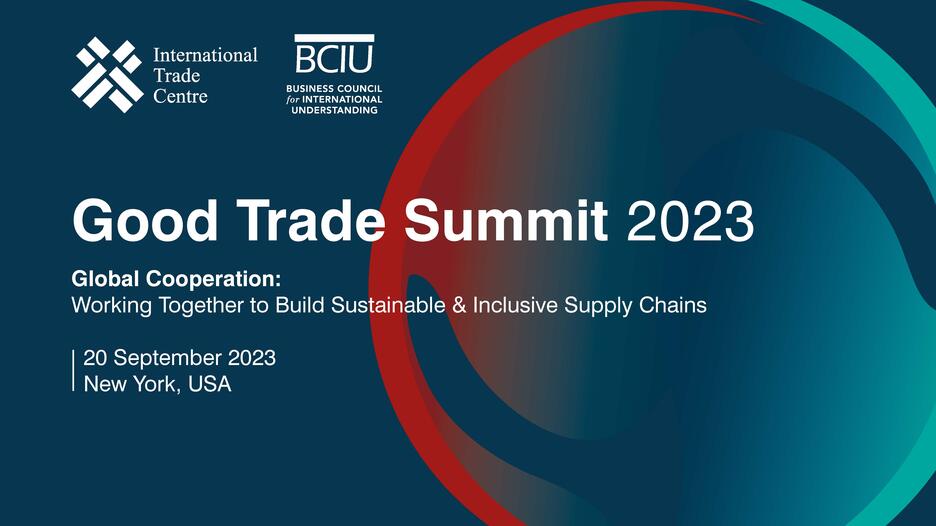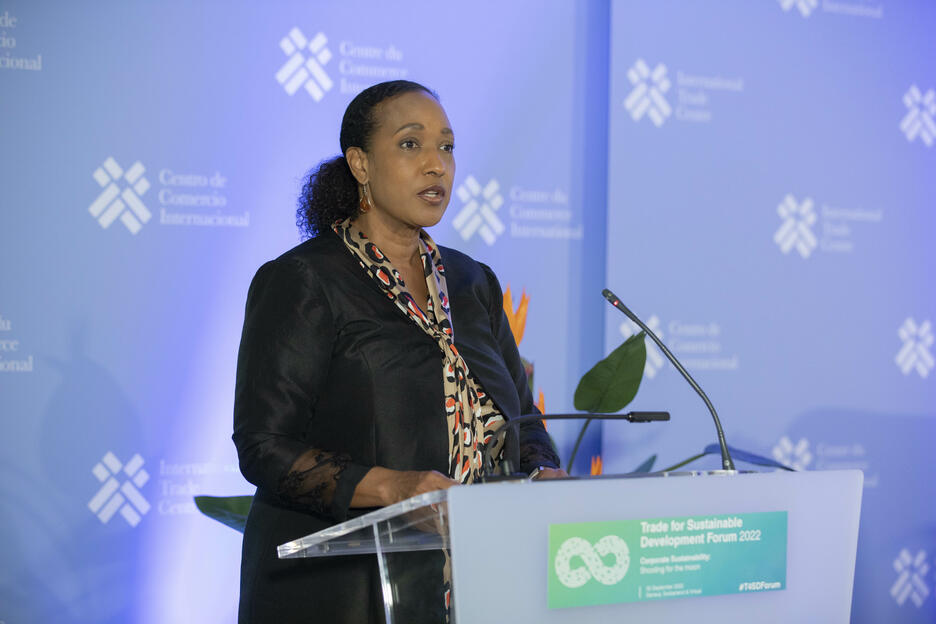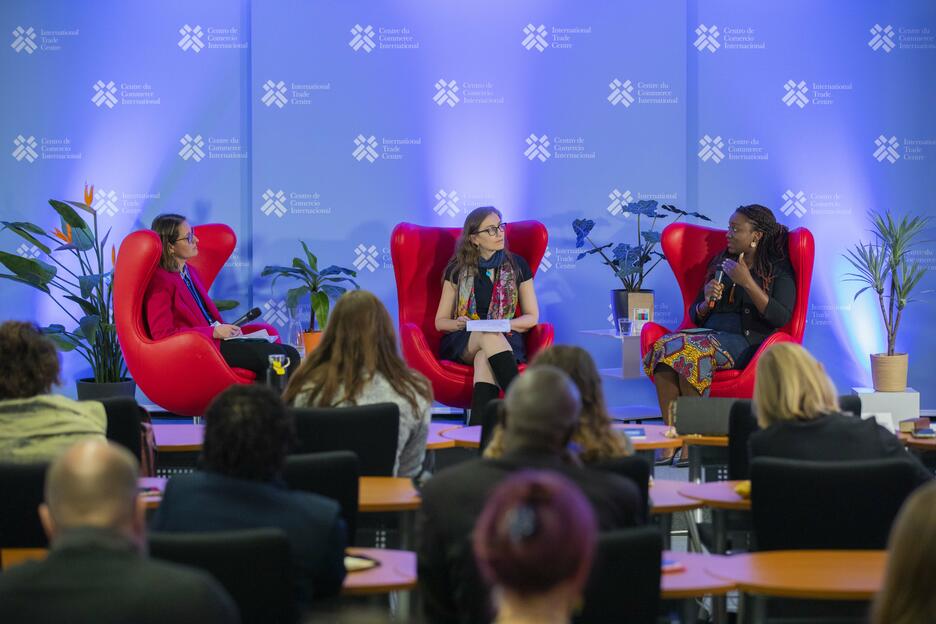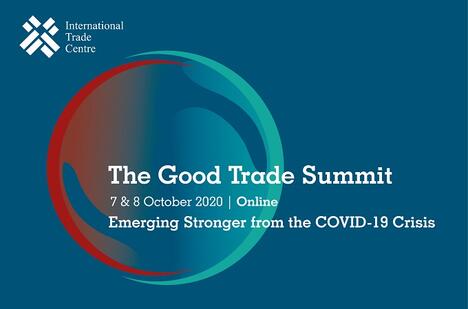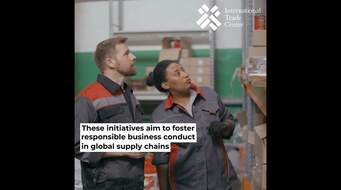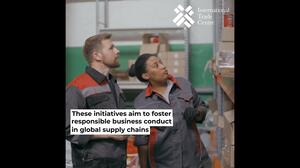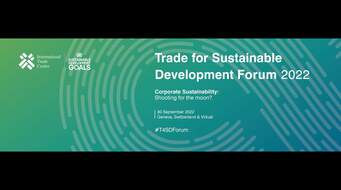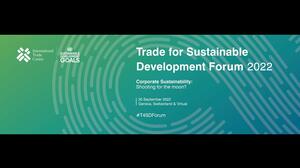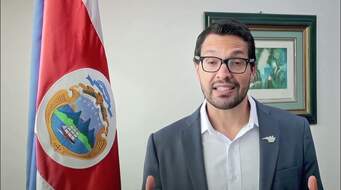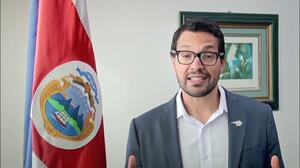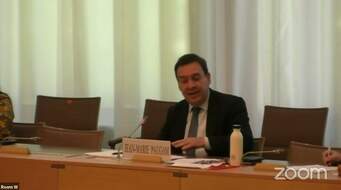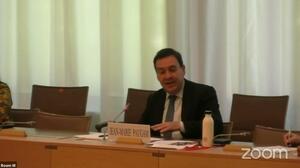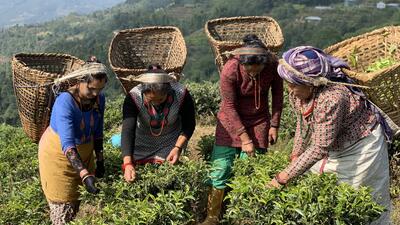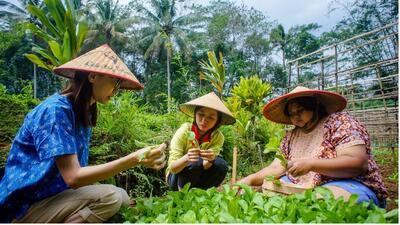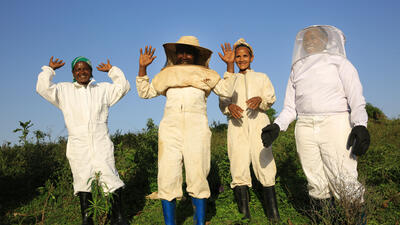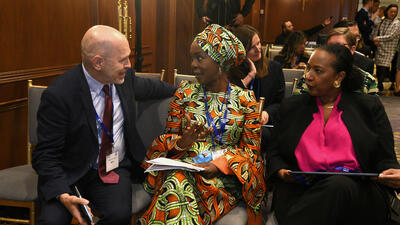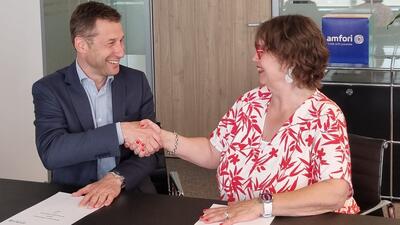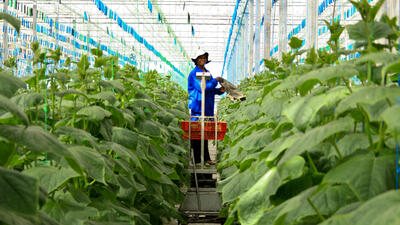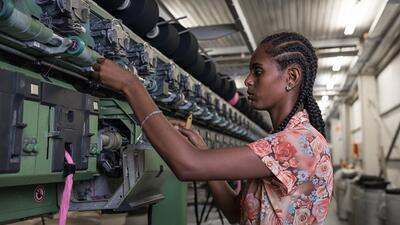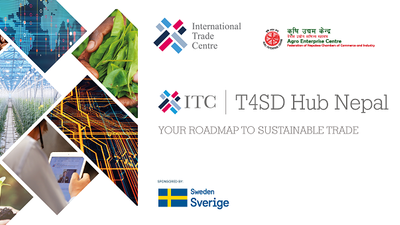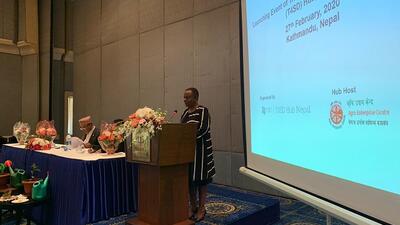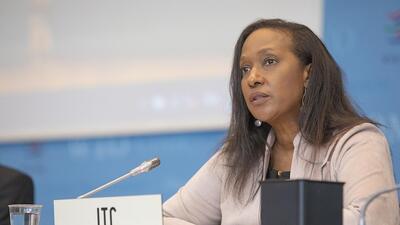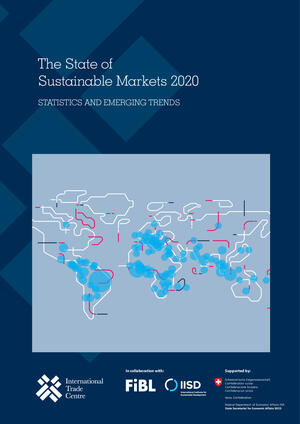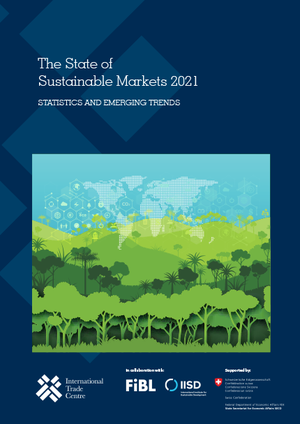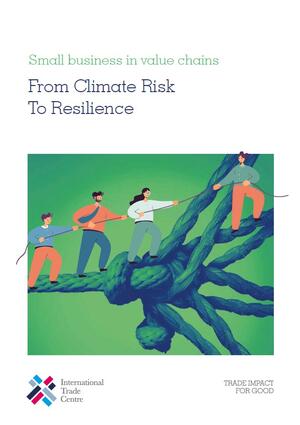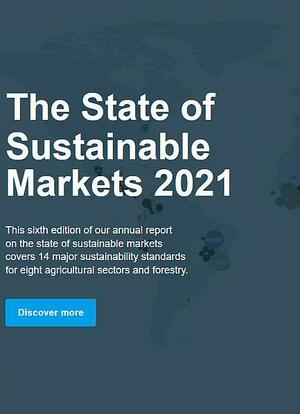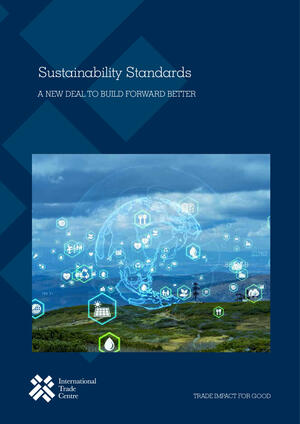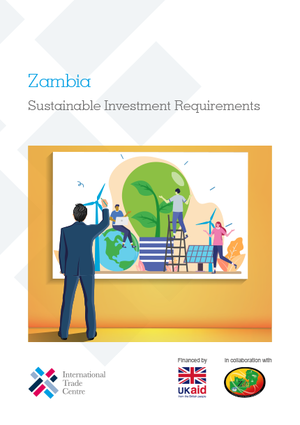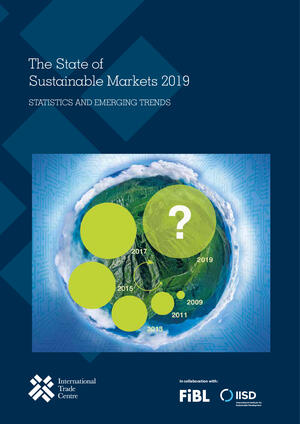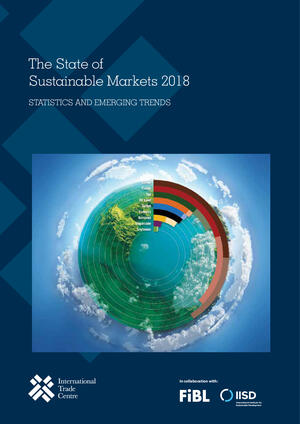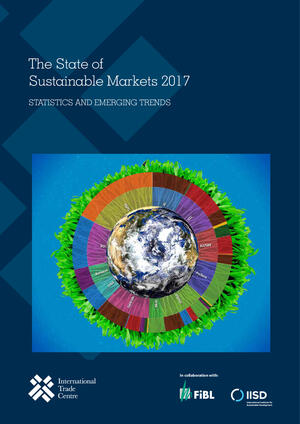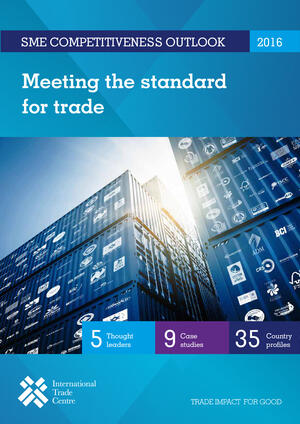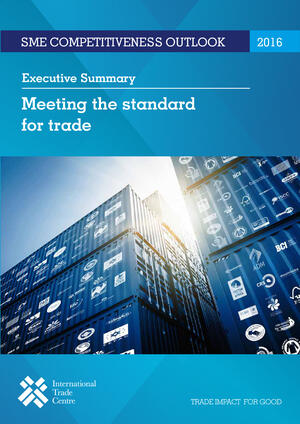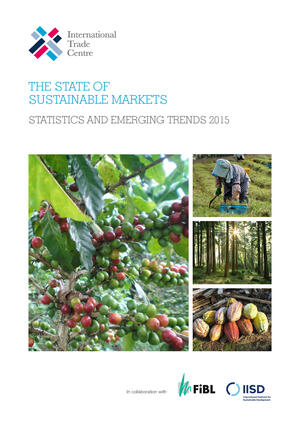
Good Trade Summit / T4SD Forum
The Good Trade Summit is the 2023 edition of the Trade for Sustainable Development Forum (T4SD Forum). The T4SD Forum is ITC’s leading global event on sustainable supply chains, bringing together key stakeholders including policymakers, business support organizations, sustainability standard groups, and the private sector including small businesses.
Date: 20 September 2023
Location: New York, USA
Partners: Business Council for International Understanding (BCIU)
ITC is organizing the Good Trade Summit 2023, jointly with BCIU, on 20 September 2023, in New York, on the sidelines of the UN General Assembly. The event will explore the theme of Global Cooperation: Working Together to Build Sustainable & Inclusive Supply Chains.
2023 marks the midpoint for the implementation of the Sustainable Development Goals (SDGs) and the 2030 Agenda. At this crucial juncture, the Summit will engage key stakeholders, from governments, multilateral organizations, and the private sector, including small businesses, brands and retailers. The event will focus on amplifying the voice of small businesses as active contributors to the SDGs in setting the policy agenda.
At the Good Trade Summit, ITC will launch a Call to Action: ‘Uniting Sustainable Actions’. This Call to Action stands as a distinctive and comprehensive initiative, uniting small businesses and diverse actors under a shared commitment to drive sustainable trade practices. Its holistic approach, focus on empowerment, collaboration, and digital transparency which sets it apart, making it a catalyst for tangible, positive change across global value chains.
From factory collapses to dam failures and mine disasters – the past two decades have seen a string of tragedies exposing the life-threatening risks in supply chains. Such incidents not only revealed the dire conditions faced by upstream workers, but also shined a light on the need for better risk monitoring in value chains.
Along with social concerns, environmental challenges have further strained supply chains, with climate change amplifying cross-cutting issues.
Policymakers around the globe responded with a patchwork of new laws, often at national levels, to prevent such incidents from re-occuring. However, there was a pressing need to develop international frameworks and enforcement mechanisms to streamline the national policies that were fragmented at best.
In light of these challenges, a growing movement emerged to safeguard human rights and protect the environment in the global economy. On a supranational level, in February 2022, the EU adopted its proposal on corporate sustainability due diligence, which aims to foster sustainable and responsible corporate behaviour throughout global value chains.
The 2022 edition of the T4SD Forum delved into corporate sustainability governance and took a critical look at how the evolving regulatory landscape affects small-business owners, especially the upstream players in developing countries.
Forty years ago, consumers thought very little about their products. Coffee was “just coffee”, and shoppers didn’t care much about where it came from, what variety it was, and even less about how it was produced.
Over time, however, NGO-led initiatives lifted the curtain on production conditions, exposing the steep environmental and social costs of unsustainable sourcing. New sustainability concerns led to the emergence of Voluntary Sustainability Standards to monitor production practices and communicate sustainability efforts.
In 2020, the eruption of COVID on the world stage profoundly altered the sustainability landscape. Suddenly, audits for voluntary standards had to be conducted remotely, companies had to reconfigure their supply chains, and small businesses had to adjust and innovate at lightning speed – all against the backdrop of an impending climate crisis.
In light of these burning new challenges, has sustainability taken a back seat? Has the pandemic slowed the rise of these standards? How can small businesses, governments, and the financial sector make sense of the increasingly complex sustainability landscape? And what is the role of sustainability standards in post-COVID recovery?
To address these questions, ITC brought together its network of partners and experts, and leverages 10 years of insight as the only global, neutral institution to map these standards.
ITC hosted a novel, virtual summit in a year that saw most major events cancelled or postponed.
The summit responded to the interconnected trade and development challenges brought to the forefront by the COVID-19 crisis and merged SheTrades Global, the premier global event linking women entrepreneurs with buyers and partners, with the Trade for Sustainable Development (T4SD) Forum, one of the leading global events on sustainable value chains.
The crisis exposed the frailty of our value chains and has disproportionally
affected women. The discussions considered:
How can we use this moment to hit the reset button and build more resilient, inclusive and sustainable value chains? How can we ensure that ‘good trade’ for positive and inclusive economic, environmental and social impact is the way forward in a post-COVID world?
As the world spins faster and faster towards a climate emergency, maintaining the status quo is no longer an option. And in a shifting global context where multilateralism is under threat, the need for swift, collaborative action has never been greater.
The sixth edition of the Trade for Sustainable Development Forum focused on sustainability mainstreaming – the process of embedding sustainability into the DNA of every organization and every business. The three-day event looked at sustainability mainstreaming from every angle: from its policy implications to its implementation on the ground, from its environmental dimension to its social dimension, from SMEs to large corporations.
Photos from Day 1, Day 2, and Day 3
The fifth T4SD Forum discussed Sustainable Development Goal 12: Responsible Consumption and Production and its relationship with sustainable trade in global value chains.
SDG 12 aims at “doing more and better with less”, by promoting a more resource efficient economy and encouraging industries, companies and consumers to move towards more sustainable patterns of consumption. For global value chains, shifting towards greener production practices demands collaboration among all actors from producers to final consumers.
The 2018 T4SD Forum aimed to:
- Provide a unique platform to discuss sustainable trade practices and identify innovative best practices - vis-à-vis the implementation of SDG 12.
- Identify challenges and opportunities for SMEs arising from a shift to a greener economy for the implementation of SDG 12.
- Leverage ITC’s contribution to the Global Goals through support to SME international competitiveness for inclusive and sustainable growth through value addition, trade, investment and global partnerships.
Videos on sustainable farming and commercial diplomacy
Photos from the panel sessions, the Project Lab and Partner's Day, and the High-level sessions
The event explored key themes around partnerships:
- Why are some models more successful in achieving sustainability objectives?
- What are common elements of success when standards organizations, policy makers and private companies work well together?
- What can we expect from successful collaboration?
- What issues should we consider when engaging in new partnerships?
Photos from the opening day, Partner's Day and Open House, the high-level panel at the WTO Public Forum, and the Photo Booth.
Connecting communities in policy and business, trade and sustainability, this Forum challenged thought leaders to bridge the gap between debates on sustainability standards, supply chains, and international trade to work towards achieving the UN Global Goals for Sustainable Development (SDGs).
The focus was on the importance of data-driven decision making in sustainable value chains. The sessions brought out candid exchanges of views, with the latest industry and policy insights and experience.
The Forum highlighted why sustainability information and data matter and how to make smarter decisions as a business leader, a policymaker, or a consumer.
Photos from sessions on Connecting the unconnected, How the future will look, the Keynote on making the most of sustainable value chain data, Leveraging the digital revolution, the opening addess, a signing ceremony, a side event on sustainable consumption and production, and the Opening session at the WTO.
Videos from the Opening session, the first session and the second session.
The second T4SD Forum featured leaders in international trade who took an innovative approach to supply chain management, to ensure that small-scale producers have a voice in the global market.
The Forum featured representatives from multinational corporations, governments, international organizations academia, and non-government organizations.
Photos from sessions on:
Setting the foundation for the forum
Innovative solutions for sustainable supply chains
How to make continual improvements
Video from the sessions on innovation solutions for sustainable supply chains, new initiatives and thinking about sustainability.
At the inaugural forum, ITC launched a charter to bring transparency and harmonization of standards among major buyers, certification bodies and policymakers.
Standards protect workers, the environment and consumers, while offering producers a door to access new markets. Public procurement increasingly reflects the influence of these private initiatives, blurring the line between public and private standards.
While standards address consumer concerns about environmental, labour and social issues, it is challenging for producers to comply with so many different, overlapping standards. Dialogue among policymakers, suppliers and buyers during this event aimed to contribute to transparent, harmonized standards that contribute to sustainable development goals.
Photos from sessions on
The supplier perspective - implementing sustainability standards
The buyer perspective - sustainable sourcing and SME integration into supply chains
Towards core principles for sustainable trade




